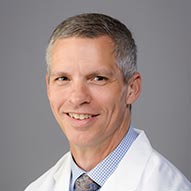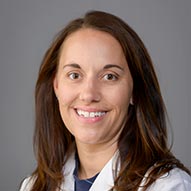Dallas
214-456-8131
Fax: 214-456-0654
Plano
469-497-2503
Fax: 214-867-9480
Request an Appointment with codes: Pain Management
Refer a Patient with Amplified Musculoskeletal Pain Syndrome AMPS
214-456-8131
Fax: 214-456-0654
469-497-2503
Fax: 214-867-9480
Request an Appointment with codes: Pain Management
Refer a Patient with Amplified Musculoskeletal Pain Syndrome AMPS
AMPS, Amplified Musculoskeletal Pain Syndrome, is a condition in which pain signals that are traveling from the spinal cord to the brain are misread and intensified. This overactive pain signal can cause constriction of blood vessels, which deprives oxygen in muscles, bones, and skin causing acid build up. In turn, a mild pain signal is amplified into a very painful signal. Pain can occur in just one area of the body, or can be in multiple locations. We do believe the pain is real for your child, and that it can get better.
Amplified pain syndrome can encompass multiple diagnoses including: complex regional pain syndrome (CRPS), reflex sympathetic dystrophy (RSD), central sensitization pain syndrome, and any other nerve related pain.
Many times, children with AMPS (Amplified Musculoskeletal Pain Syndrome), have difficulty going to school, participating in activities they once enjoyed, start spending less time with friends, and can become more anxious and depressed. For this reason, the treatment for AMPS (Amplified Musculoskeletal Pain Syndrome) is a multimodal approach. This includes: physician, intense physical therapy, and psychological counseling.
Signs and symptoms may include but are not limited to:
There is not one specific test that will indicate AMPS (Amplified Musculoskeletal Pain Syndrome). Many children have seen several different specialists before seeking treatment in the chronic pain clinic. However, MRIs and x-rays are usually done prior to the child’s appointment, and results are reviewed by our pain management physicians. At this point, the focus is now on starting treatment for AMPS (Amplified Musculoskeletal Pain Syndrome), and not continuing to seek more diagnoses.
The three primary causes of AMPS (Amplified Musculoskeletal Pain Syndrome) are, but not limited to, injury, psychological stress, and illness. Other factors may include genetics, hormones and age. AMPS (Amplified Musculoskeletal Pain Syndrome) affects females more often than males. Psychological stress is the most frequent cause of AMPS (Amplified Musculoskeletal Pain Syndrome), up to 80% of cases. Examples of stress in our patients could be family situations, past trauma, school, and different changes in a child or adolescent’s life. This psychological stress can manifest itself as increased pain.
Injuries can also lead to Amplified Musculoskeletal Pain Syndrome (AMPS). Many children who have had an injury continue to have intense pain, even after the tissue or bone has healed. There is not an identified problem with lab studies or imaging studies, yet the patient continues having pain.
Illnesses such as arthritis, myositis, Ehlers-Danlos, and other rheumatologic diseases can increase the likelihood of Amplified Musculoskeletal Pain Syndrome (AMPS). No matter what the cause for Amplified Musculoskeletal Pain Syndrome (AMPS), the treatment still remains the same.
The treatment for amplified pain involves a multi-modal approach, focused on rehabilitation and improved functioning. This typically involves: a physician, physical therapy (PT), and psychological support. Research shows that this approach to helping chronic pain is what can help restore function and improve the pain. Oftentimes, functionality will improve prior to the pain.
We understand that parents can be very worried and concerned for their child who is in constant pain. As part of moving forward and treating AMPS it is recommended that there is a decrease in the attention to the pain. Talking about the pain can actually make the healing process worse. The focus should now be on function, improvement, and the child’s daily activities. Psychological counseling can help address this more, and the therapist can help the family change their focus off of the pain.



